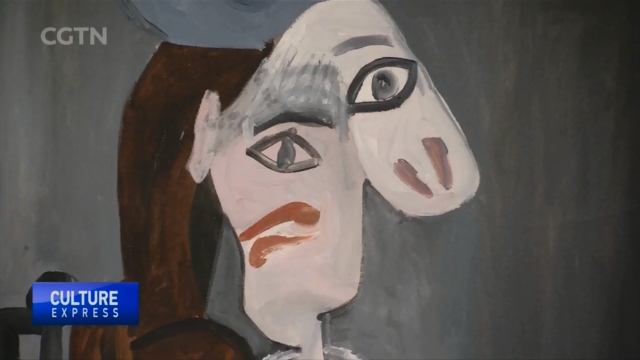
19:03, 21-Sep-2018
China Art Market: China continues to see booming art market
Updated
18:09, 24-Sep-2018
04:28

China has overtaken the UK to become the second largest art market in the world. That's according to this year's report on the global sector by UBS and Art Basel. It's not the largest share of international trade China's ever had, but experts say the numbers do suggest that the future of art and of China are heavily intertwined. Joel Flynn has more from Hong Kong.
To the untrained eye, the work of the Frog King might look little more than eccentric. To those in the know, this is where to invest. Kwok Mang-ho has been using calligraphy, sculpture, installations and photography to complement his performance art since 1967. Born in Guangdong and raised in Hong Kong, after creating more than 5,000 projects, Kwok says what really stands out in China's art world is the growth in consumers. And nowhere is that clearer than through Art Basel's exhibition in Hong Kong.
KWOK MANG-HO AKA FROG KING HONG KONG ARTIST "There are a lot of Chinese buyers and it's a normal healthy trend. When Art Basel first started, a lot of people just came to take photos but now they're thinking of art as an investment, and that's a good direction."
This is the trend that Art Basel and UBS have found in their latest report on the global art market, worth $63.7 billion in 2017. China is now the second largest place in the world for it, leapfrogging the UK but still trailing the US. Sales in China last year were up 14% to $13.2 billion - rising faster than the global average.
ADRIAN ZUERCHER HEAD OF ASSET ALLOCATION, UBS WEALTH MANAGEMENT, ASIA PACIFIC "They create so many new millionaires, not just billionaires, that are dealing in art, and also you can see that the consumers are basically becoming more sophisticated and they actually are starting to look for art, starting to invest in art, and I think this is natural that this will become one of the largest, if not the largest market eventually, and also in terms of art."
It's not the first time China's found itself in such a powerful position in the global art market. But UBS says that sales in the country have fallen for the last two years, partly as a result of anti-corruption measures and capital controls. By far the biggest growth, though, is at the top end of the scale in China. Tastes too are changing. Where previously most of the focus may have been on older, Chinese art, appetite is growing for Western pieces and one in particular.
JASMINE CHEN SOTHEBY'S CONTEMPORARY ART SPECIALIST "Picasso is a household name and usually on the top of the wish list of most collectors right now. So there is a huge demand. In China, due to the number and amount of wealth being created in the past year, their buying power is really strong, so they really made an impact on the market."
That's not going unnoticed by gallery owners like Henrietta Tsui-Leung, who say collectors are also becoming more sophisticated.
HENRIETTA TSUI-LEUNG GALERIE ORA-ORA OWNER "Over the years I've seen more and more of a more educated behavior. This year they are much calmer, a lot of them came with their own adviser. Some of them are quite young but they have been learning and learning more."
JOEL FLYNN HONG KONG "The other change that's happening, according to gallery owners, is the growing popularity of collecting among young people. The Art Market 2018 report highlights how more and more people are buying online - and sharing their love of pieces through social media."
And it's this love of art for art's sake, rather than as an investment, that UBS is also keen to emphasize.
ADRIAN ZUERCHER HEAD OF ASSET ALLOCATION, UBS WEALTH MANAGEMENT, ASIA PACIFIC "We want to grow and protect wealth for our clients. Art, per se, is not a piece out of that. It's more from a holistic perspective that it will actually enhance a portfolio of an individual, and I think that would be like to support and to educate our clients when it comes to that."
They say that beauty is in the eye of the beholder. When it comes to art, increasingly it seems that it's Chinese investors who might be seeing true value. JOEL FLYNN, CGTN, HONG KONG.

SITEMAP
Copyright © 2018 CGTN. Beijing ICP prepared NO.16065310-3
Copyright © 2018 CGTN. Beijing ICP prepared NO.16065310-3